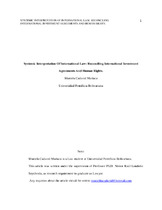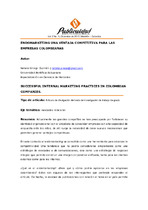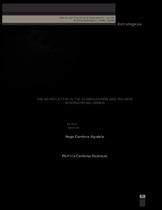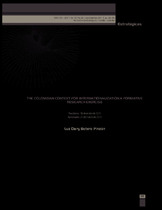Systemic Interpretation Of International Law: Reconciling International Investment Agreements And Human Rights.

Ver/
Fecha
2017Autor
Cadavid Mariaca, Marcela
Director/Asesor
Londoño S., Néstor Raúl
Tipo de contenido
article
Citación
Metadatos
Mostrar el registro completo del ítemDocumentos PDF
Resumen
International Investment Agreements are undoubtedly today one of the most relevant instruments for States aiming to regulate its relations as home and host State of foreign direct investment. However, as they were created with the single object to protect foreign investment mainly carried out by multinational entities, such isolation from other international norms -both customary and conventional- as well as broad clauses allowing investors to challenge States under expensive international arbitraments, has already shown to have adverse impacts, mainly on the adoption of regulations by States with the purpose to implement or enhance international human rights. As Colombia is already respondent in an arbitrament because the enactment of a measure intended to protect the environment, this article aims to analyse from an academic point of view if a systemic interpretation of international law might be a solution to avoid the aforementioned negative outcomes arising from this fragmentation.
Palabra/s clave
International Investment Agreements
Human rights
Multinational entities
Investor-State dispute settlement
Colombia-fragmentation of international law
Systemic interpretation of international law
Colecciones
- Trabajos de grado [6698]
El ítem tiene asociados los siguientes ficheros de licencia:
Excepto si se señala otra cosa, la licencia del ítem se describe como Attribution-NonCommercial-NoDerivatives 4.0 International
Ítems relacionados
Mostrando ítems relacionados por Título, autor o materia.
-
Endomarketing una ventaja competitiva para las empresas colombianas
Urrego Guzmán, Natalia (Universidad Pontificia Bolivariana, 2013)Actualmente las grandes compañías se han preocupado por fortalecer su identidad organizacional con el propósito de consolidar empresas con alta capacidad de respuesta ante los retos, de allí surge la necesidad de crear ... -
El estado-nación en la globalización y en el reordenamiento internacional
Cardona Agudelo, Hugo; Cardona Restrepo, Porfirio (Universidad Pontificia Bolivariana, 2011)El Estado-nación ha sido un tema recurrente en los distintos debates académicos a finales del siglo XX y principios del XXI, dada su importancia y pertinencia en el ordenamiento político de las instituciones en Occidente, ... -
Contexto Colombiano para la internacionalización: un ejercicio de investigación formativa
Botero Pinzón, Luz Dary (Universidad Pontificia Bolivariana, 2011)Este artículo presenta la experiencia de un ejercicio de investigación formativa realizado con dos grupos de estudiantes de diferentes disciplinas de pregrado de la Universidad Pontificia Bolivariana, en los cursos de ...




